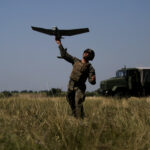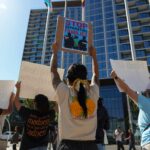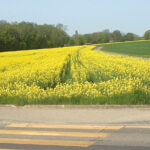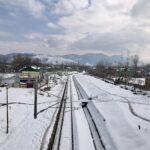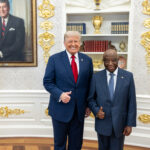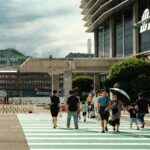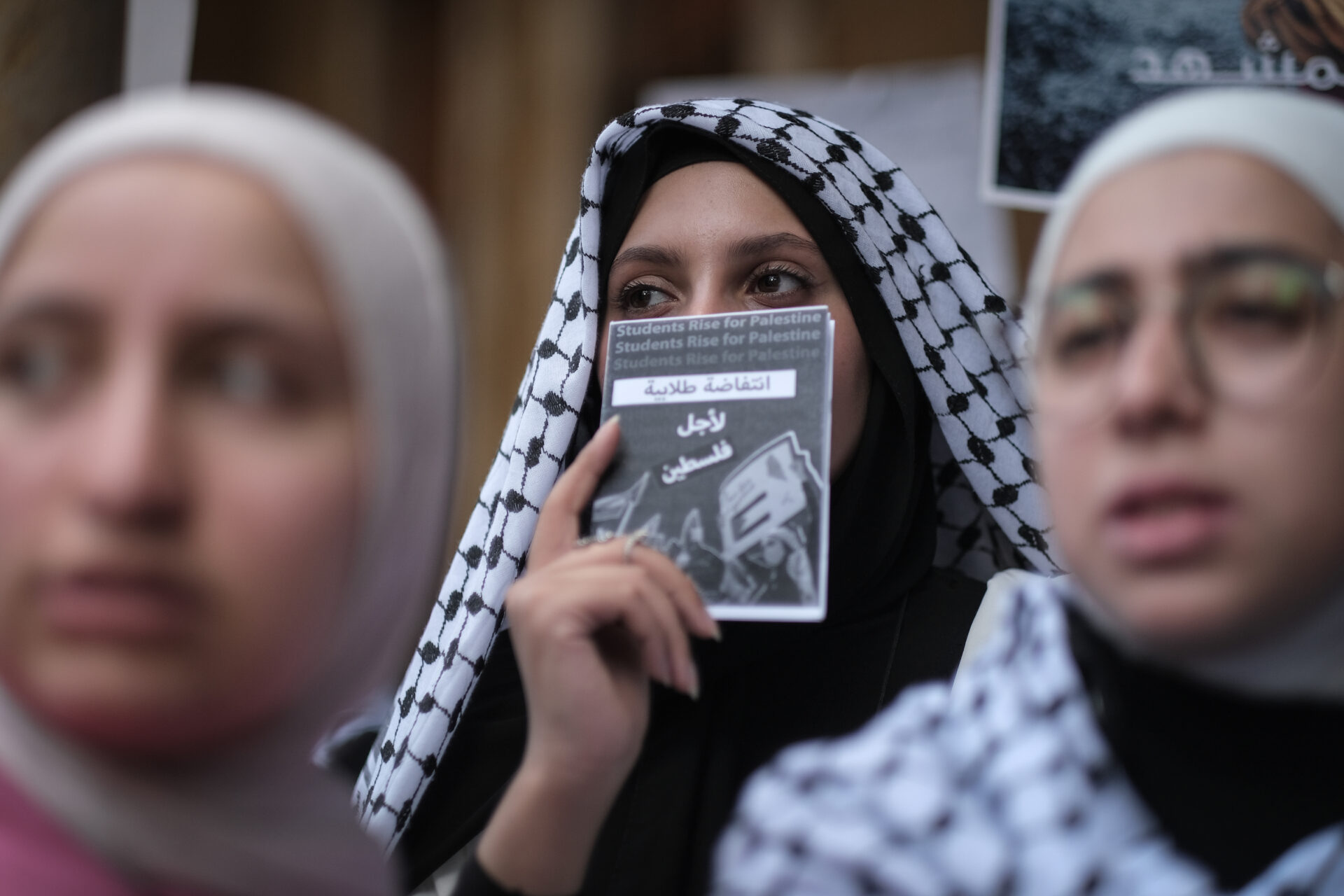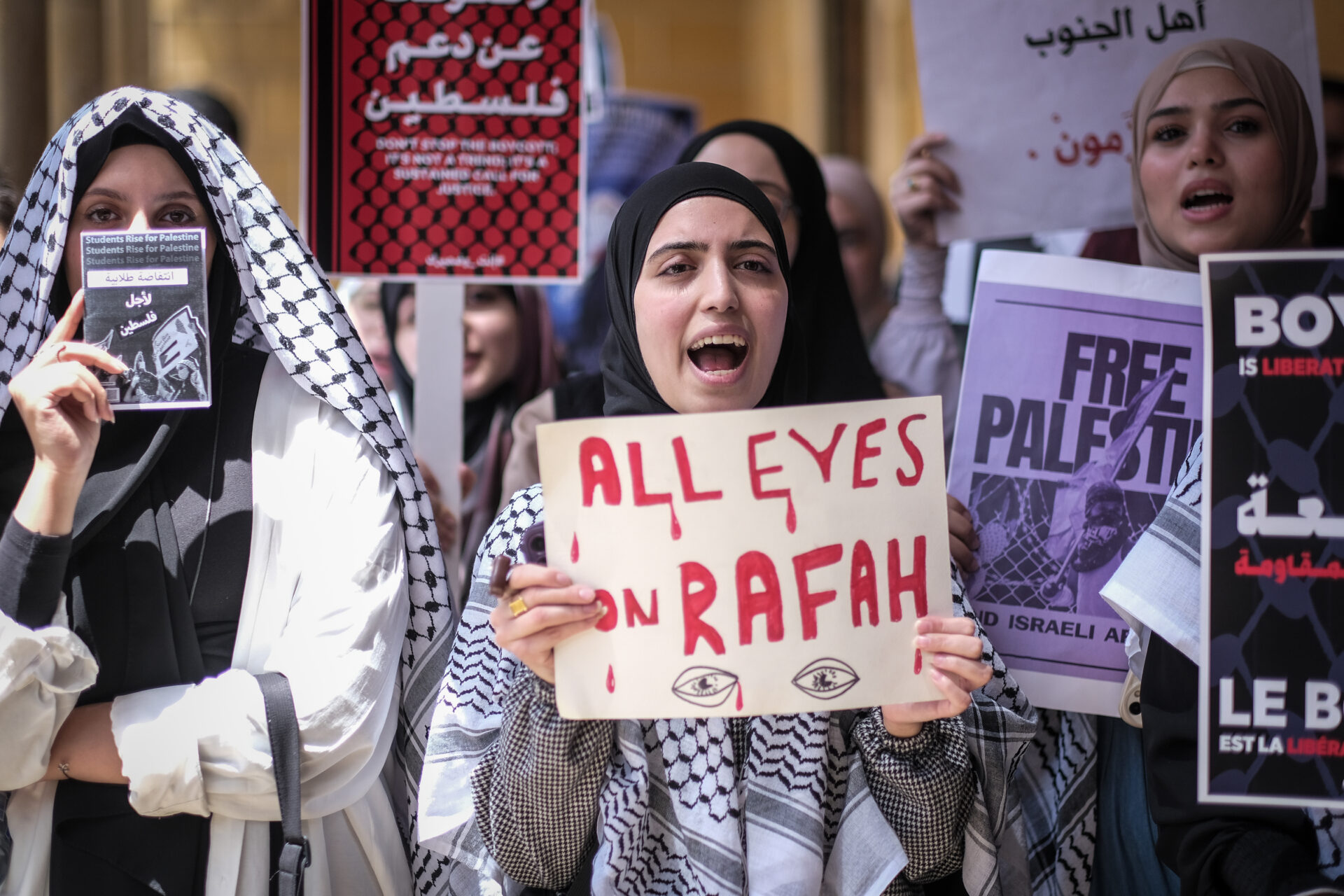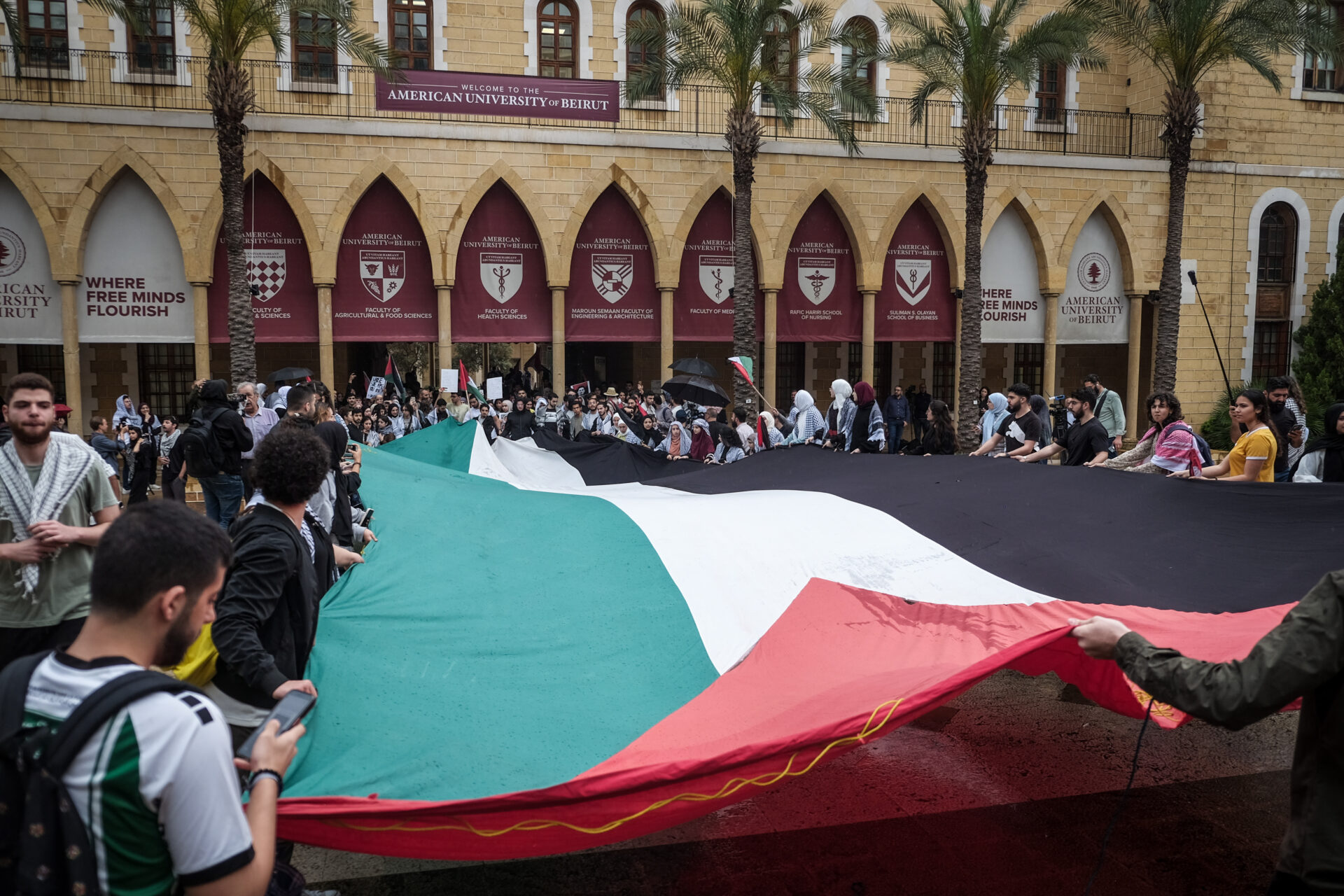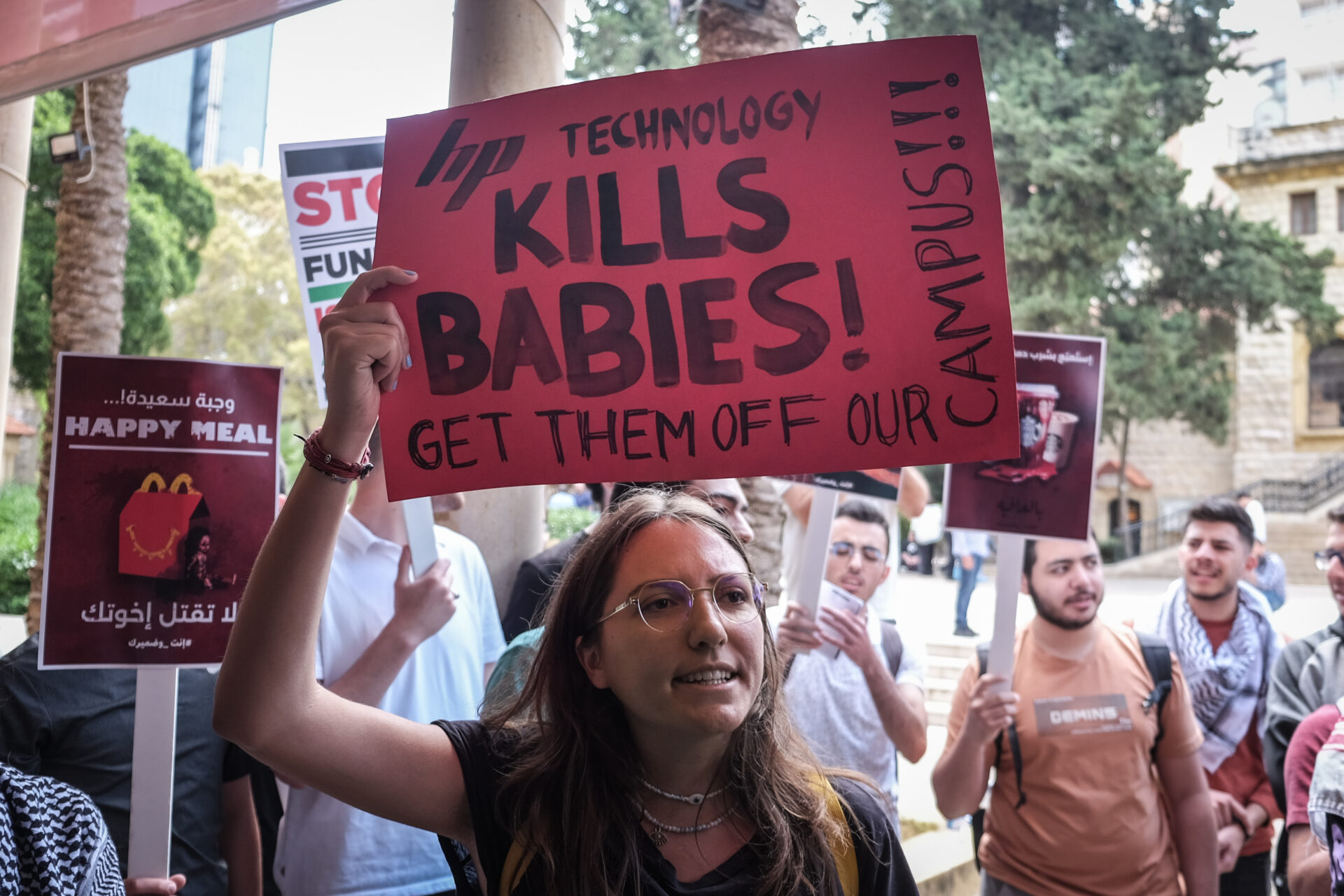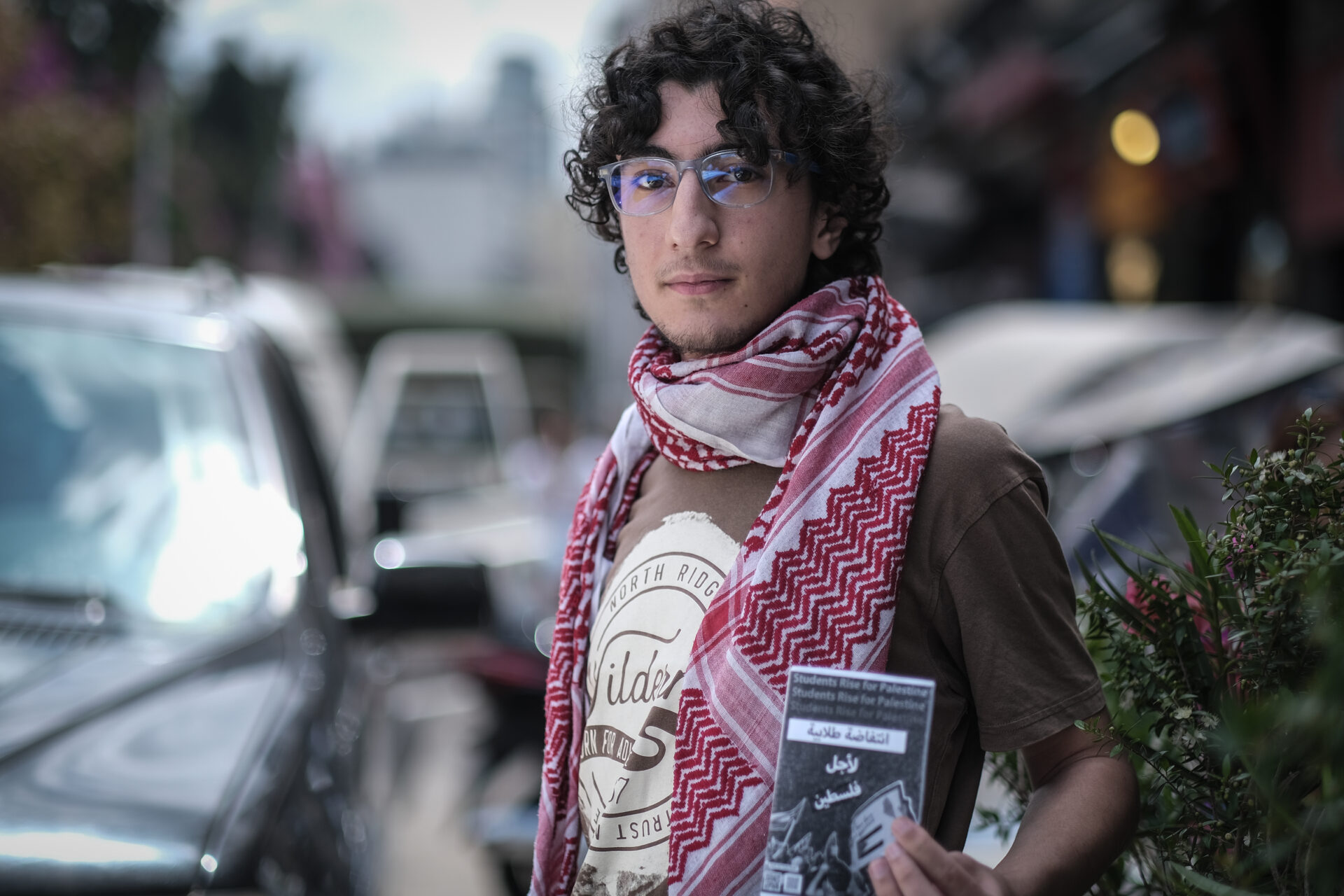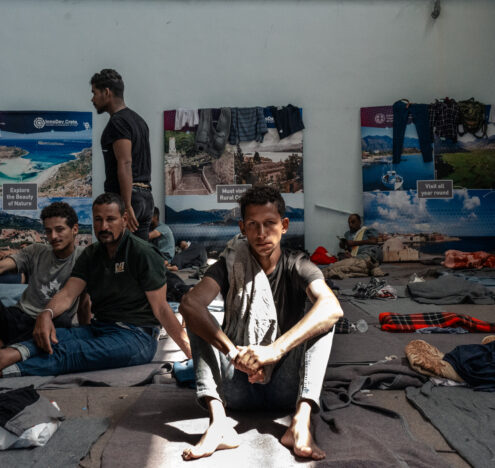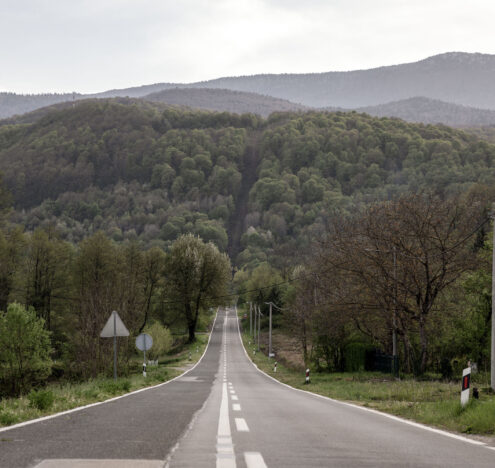On Tuesday, a hundred or so students in their late teens and early 20s chanted on the main plaza of the American University of Beirut (AUB), donning black and white keffiyeh scarves, smiling and waving a large Palestinian flag. Behind them stood a statue of Daniel Bliss, the American missionary who founded the institution in 1866.
Nearby, in the library, other students were in the midst of last-minute studying for final exams, while more than a dozen AUB-affiliated security guards kept a tight watch on the shuttered gates into campus, only letting registered students and approved members of the press inside.
Tuesday’s protest, as well as a larger one last week where students braved an unseasonably late rainstorm, comes amid a whirlwind of global student protests in support of Palestine, calling on school administrators and world leaders alike to help end months of Israeli bloodshed in Gaza that has killed some 35,000 people.


